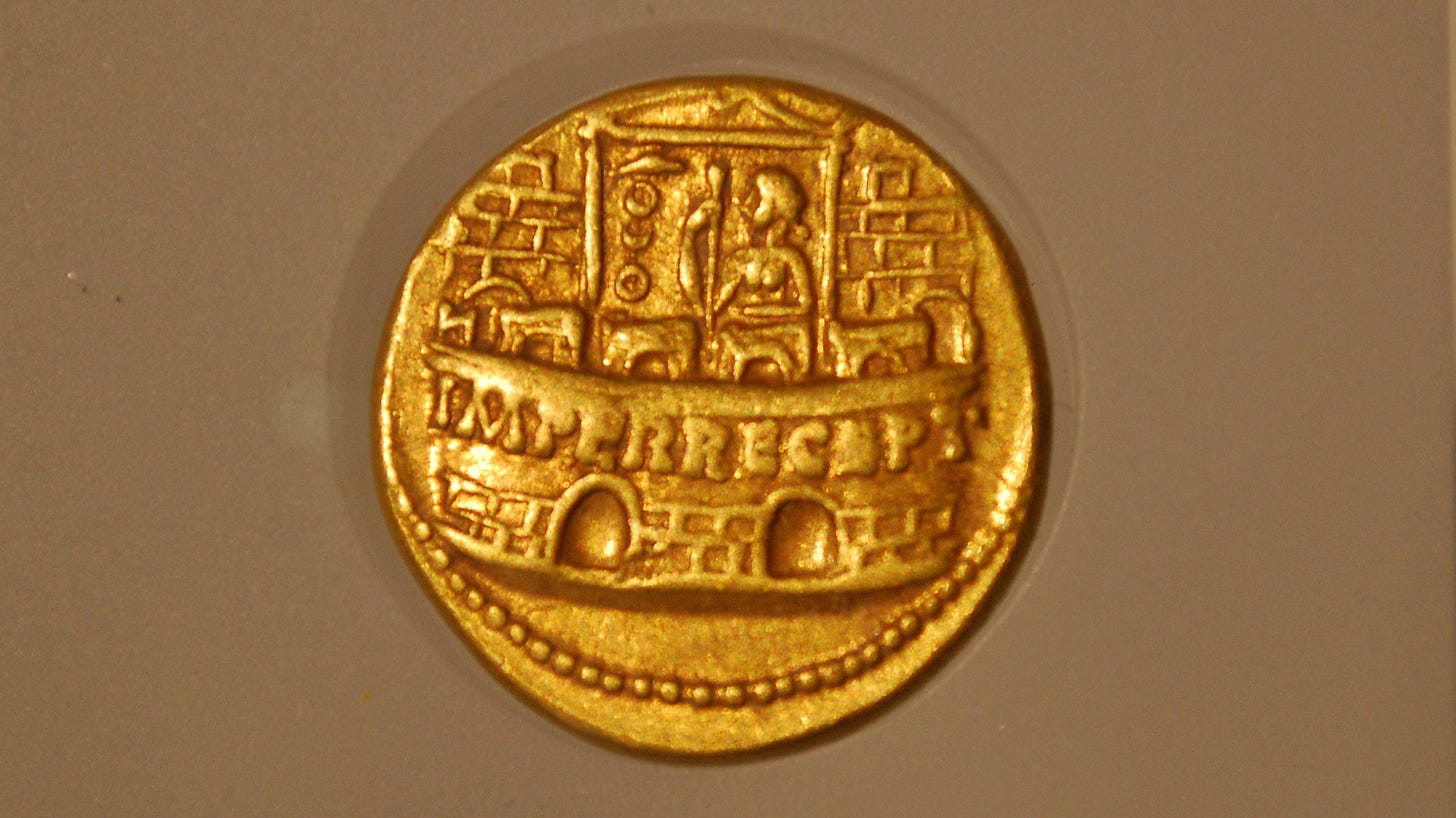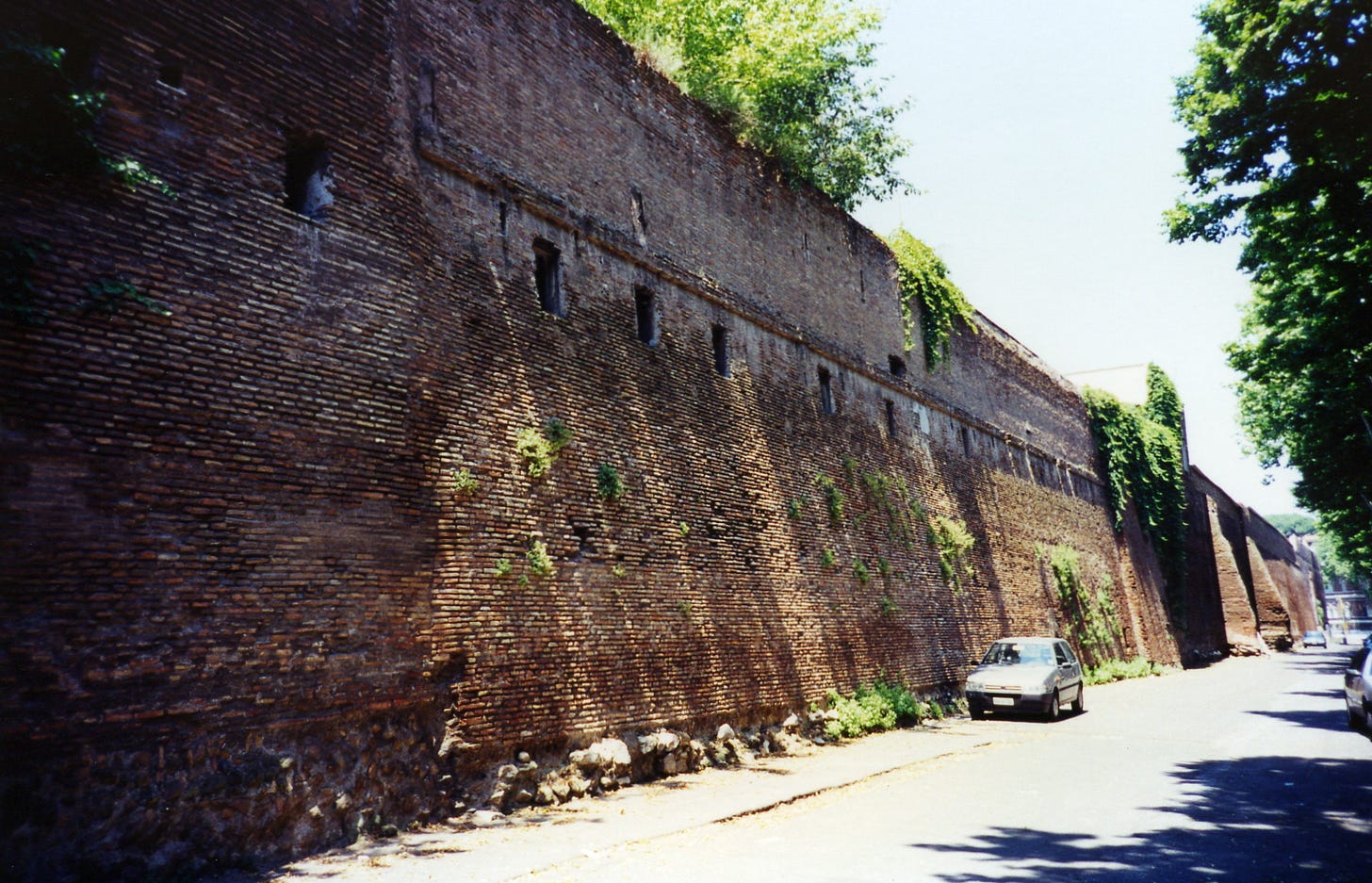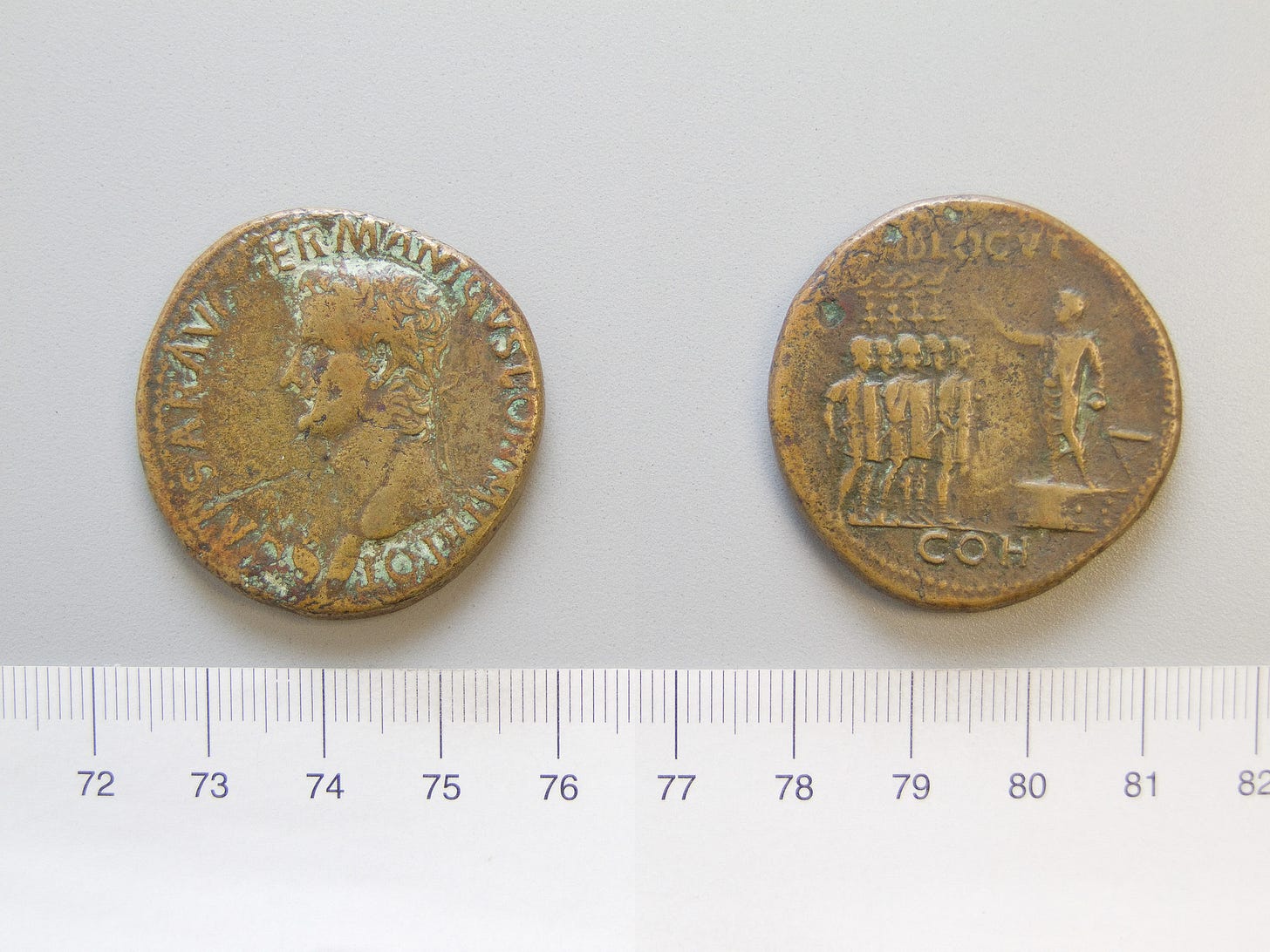
Originally published in Ancient Warfare XIII.6 (2020)
Gnaeus Pompeius Magnus, a direct descendant of Pompey the Great, died in a rather ignominious manner. While busily engaged with his favourite catamite, Magnus did not notice the approach of his executioner and was stabbed to death (AD 46/47).
Magnus was the son-in-law of Emperor Claudius and that is why, at least in the mind of the empress, he had to go. Messalina was Claudius’ third wife and she wished her son Britannicus to succeed as emperor. Magnus, and any son he had with Antonia, Claudius’ only surviving child from his second marriage, would threaten that succession. Magnus was one of Claudius’ favourites but his demise was inevitable once the accusation of treason was made. Claudius lived in fear of plots and conspiracies: he had a horror of sharing the fate of Caligula.
Executioners and Torturers
Caligula fell victim to a plot involving a small faction of the Praetorian Guard, but the vast majority of guardsman rallied behind Claudius (Caligula’s uncle), escorted him to safety and hailed him as Caesar. While the Senate entertained the notion of restoring the Republic, the praetorians acted to ensure their continued employment. Their reward from Claudius a huge donative of 15,000 sesterces per man (perhaps proportionately more for centurions), and he issued coins celebrating their fides – faithfulness. As emperor, Claudius also had a force of barbarian mercenaries,1 the Germani corporis custodes (the German bodyguards) to protect him, but he never forgot the service the praetorians did him and remained reliant on them.
Every year, on the anniversary of his accession (24 January AD 41), Claudius would visit the Castra Praetoria, the praetorians’ fortress on the outskirts of Rome, distribute a donative and entertain the guardsmen with gladiatorial combats. In times of crisis, the emperor took refuge in the Castra Praetoria and sought solace in the company of his soldiers (e.g. the Silius episode). Important public celebrations and ceremonies were held on the Campus Praetorianus (the praetorian parade ground) lying between the fortress and the city proper, including Claudius’s triumph over Caratacus (AD 50) and Nero assuming the toga of manhood (AD 51).

The assassin of Magnus is not identified, but he was almost certainly a praetorian guardsman. Probably not a miles gregarius (common soldier); a member of the imperial family would require an executioner of appropriate rank. Usually a tribune, or perhaps a centurion to whom the dirty work would be delegated.
Torture was also part of the job. In AD 47, the equestrian Gnaeus Nonius was noticed by praetorians in throng of Claudius’ well-wishers. He was searched and a sword was found concealed in his clothing. Nonius was alone but suspected of having accomplices. He was dragged off for torture and, according to Tacitus, was ‘torn to pieces’, but admitted only to his own guilt.
Avengers
In a world in which disabilities were despised, Claudius’ physical impairments suggested he was unfit to rule and made him the object of plots and assassination attempts. It is unsurprising that he was paranoid about his safety. The praetorians frisked all who came into the emperor’s presence, irrespective of age, gender or rank. If Claudius visited the house of a senator or some other notable, the praetorians went ahead and rifled through it.
When the emperor was travelling about Rome or conducting public business, crowds that got too close were roughly treated by the praetorians. It mattered little to them if the crowds were composed of curious citizens or angry protesters hurling bread; they were treated alike. Battlefield manoeuvres performed on the campus were put into practice in the streets and the Forum; the crowds were shoved back or charged through and the emperor bundled off to safety. The praetorian prefects and tribunes acted as Claudius’ bodyguard when he attended the Senate. If he entertained guests in the palace or at an imperial villa, the emperor was closely guarded by the elite speculatores. These ‘scouts’ were the lecti (chosen men) of the praetorians and equipped with distinctive lances. But Claudius considered that even speculatores were not sufficient when he shared a dining room filled with potential assassins, and the usual slave servers were replaced by praetorian waiters.
One of the 12 praetorian cohorts was always in attendance of the emperor, either in the palace at Rome or wherever his praetorium (headquarters) happened to be. In March AD 46, Claudius’ praetorium was an imperial villa at Baiae in Campania. From there he issued a famous edict confirming the citizen rights of certain Alpine tribes in the territory of Tridentum (Trento). He was minded to do so because members of those tribes were serving as praetorians.
The tribune in command of the duty cohort received a watchword from the emperor every day. Claudius’ preferred watchword was ‘Revenge on those who struck first’. Or, those who intended to strike first. According to the biographer Suetonius, 35 senators and more than 300 equestrians were executed during the emperor’s reign. Claudius was not always aware that an execution was about to take place, let alone that a charge of treason had been made. Sometimes the praetorians acted on their own initiative. An infamous case involved a former consul being dispatched by a praetorian centurion; Claudius simply condoned the murder confident that the consular was guilty of some treachery.
Empresses
Traitors, real or suspected, were all around, as were their fellow plotters, and they had to be dealt with. Including empresses. In AD 48, Messalina went too far and conducted a wedding ceremony with the senator Gaius Silius. This apparently bizarre episode was actually the opening shot in a coup against the unfit Claudius. It was an abject failure. Silius and other conspirators (including the prefect of the vigiles, the main military backer of the plot) were rounded up by centurions and taken to the Castra Praetoria. They were condemned by the massed praetorian cohorts and then lynched. Messalina fled to the Gardens of Lucullus. She contemplated suicide but could not bring herself to drive the blade home. A praetorian tribune and one of Claudius’ imperial freedmen arrived to help her along. The freedman ranted and raved at the disgraced Messalina, but the tribune remained silent and coolly dispatched the dithering empress with a single blow.
Being an empress was a risky business. Caesonia, Caligula’s fourth wife, was murdered soon after Cassius Chaerea and his band of praetorian dissidents castrated the emperor and hacked him to death (24 January AD 41). Chaerea entrusted Caesonia’s death to Iulius Lupus, his fellow-tribune and co-conspirator. Chaerea was a former legionary centurion who had hacked his way through lynch mob of mutineers in AD 14. He was an exemplar of the old Roman disclipline and the image of the archetypal bellator (warrior). He was also an unflinching torturer and was Caligula’s chief inquisitor. But this fearsome character had a surprisingly feminine voice, which Caligula delighted in mocking. Lupus was not as ruthless as Chaerea. He delegated the grim task to a praetorian centurion: Caesonia was stabbed and her infant daughter was swung against a wall.

Caesonia had replaced Lollia Paulina as empress in AD 39. A narrow escape it seemed, but a decade later Paulina fell foul of yet another empress – Agrippina, Claudius’ fourth wife. Viewed as a potential rival for Claudius’s affections, Paulina was denounced on various trumped up charges, including consorting with magicians. Her property was seized by the state, and a praetorian tribune was dispatched to oversee her required suicide.
Combat
The theme of this issue is Claudius at War. He certainly received more acclamations as imperator than any emperor before Constantine. However, except for his brief foray into Britain (AD 43), Claudius’ personal experience of campaign was limited and ‘his’ many victories were won by legates and generals operating under his auspices.
This left few opportunities for real fighting by the Praetorian Guard. As we have seen, they were hard and ruthless men. They would have relished the opportunity of distinguishing themselves in the traditional Roman manner on the battlefield. But the praetorians had to make do with fighting beasts.
The praetorian cavalry, led by the prefect and tribunes, displayed their deadly skills in a panther hunt in the Circus Maximus during the Secular Games of AD 47. During the construction of the new harbour at Ostia (Portus), a killer whale appeared and devoured a cargo of hides that had fallen off a ship from Gaul. When the tide turned, the orca was stranded in the shallows, and Claudius decided to have some sport. The praetorians took to boats and assailed the sea monster with spears and javelins. The spectacle attracted a large crowd, including Pliny the Elder, who reports that the orca sank one of the praetorians’ vessels.
Towards the end of Claudius’ reign, the praetorians conducted a military operation of sorts at the Fucine Lake. They provided security at a large-scale naval spectacle involving opposing squadrons of condemned men (AD 52). While marines from the fleet at Miseum patrolled the lake on ships, the praetorians were stationed on barricaded rafts and trained their catapults and ballistas on the convicts.
However, some praetorians (a few cohorts?) did accompany Claudius to Britain in AD 43 and fought in the final stage of the campaign. Gaius Gavius Silvanus was a praetorian hero of the British War. He was newly enrolled in the corps of the evocati and was awarded torques, armlets, phalerae (medallions worn on a chest harness) and a gold crown. Marcus Vettius Valens also distinguished himself in the advance from the Thames to Camulodunum (Colchester) and was awarded torques, armlets and phalerae. He was in the final year of his service (praetorians usually served 16 or 17 years), but Claudius decided to retain valiant Valens as an evocatus (one recalled to service), and this made him eligible to receive the higher award of a corona aurea (gold crown).
Valens went on to have a long and glittering career. He was promoted through 12 increasingly senior officer posts in various branches of the army. He eventually achieved equestrian status and became procurator of Lusitania in AD 66. Several of Valens’ posts were in the Praetorian Guard, including exercitator (training officer) of the cavalry element of the speculatores. He most likely held this post (his fifth after being made evocatus in AD 43/44) during the reign of Claudius. So, as well as drilling the chosen horsemen of the Guard on the Campus Praetorianus, he was responsible for banquet security and provided close protection when the emperor travelled. Just how close the bodyguards were to the emperor is demonstrated by an episode in AD 68, when the emperor Galba was accidentally jabbed by the lance of a speculator!
Further Reading



